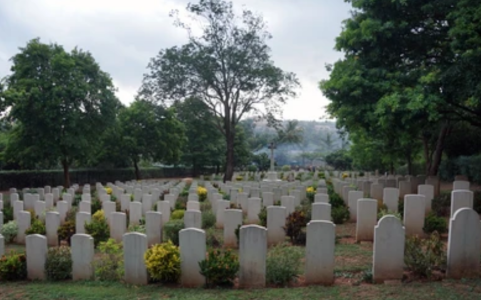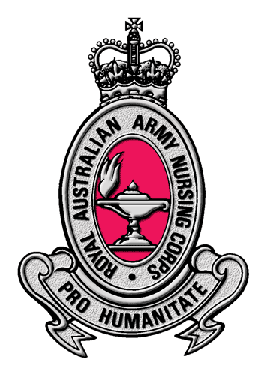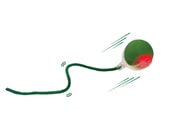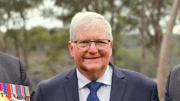Discover the Secret Heroines of WWI: How Teenagers Stumbled Upon Lost Graves That History Forgot!
By
Gian T
- Replies 6
In a remarkable journey through the annals of history, a group of intrepid high school students from St Mary's College have brought to light the nearly forgotten legacy of two unsung heroines of World War I. The sisters, Agnes and Edith Cocks, served as nurses during some of the most tumultuous times of the early 20th century. Yet, their final resting places had fallen into disrepair and obscurity. That is until these students embarked on a World War I research project that would lead them to a discovery of profound historical significance.
The students' exploration began as an academic endeavour but quickly transformed into a mission of remembrance and restoration. As they delved into the past, they stumbled upon the damaged and indecipherable graves of the Cocks sisters. The sight of the neglected gravesites, with cracked glass and decayed remnants, struck a chord with the young historians. 'It was upsetting to see,' recounted Jayla Nicholas, a year 9 student involved in the project.
Determined to honour the memory of these courageous women, the students partnered with the Headstone Project, an initiative dedicated to restoring the graves of servicemen and women. Together, they worked tirelessly to ensure that the sisters' contributions to the war effort would not be lost to the erosion of time. 'We feel really privileged to be able to remember what all the soldiers and nurses did,' Jayla said, reflecting on the importance of their work.
Agnes Cocks was a trailblazer, one of only eight nurses who departed Australia for the Boer War in South Africa in 1900. She established a medical clinic there before serving in France during World War I. Her sister, Edith, served as a nurse in Egypt and England from 1915 to 1919. After the war, Edith returned to South Australia, where she continued her noble work at the Repatriation Hospital at Keswick until 1933.
'In those early times, I think it's a testament to just how difficult it must have been, but a testament to their commitment,' said Diane Cocks, a descendant of the sisters, acknowledging the hardships they faced and their unwavering dedication.
The plight of the Cocks sisters' graves is not an isolated case. In South Australia alone, there are more than 2500 servicemen and women in unmarked graves. The Headstone Project has uncovered the stories of 110 of these individuals, but many more remain, their histories waiting to be reclaimed from the shadows.
This poignant discovery by St Mary's College students serves as a powerful reminder of the countless stories of bravery and sacrifice that lie hidden beneath the surface of our collective memory. It also underscores the importance of preserving our history, not just in books and museums, but the earth where our ancestors lay.
As we reflect on the legacy of Agnes and Edith Cocks, let us take a moment to appreciate the younger generation's role in keeping the torch of remembrance alight. Their dedication to uncovering and honouring the past is a beacon of hope for the future, ensuring that the valour and virtue of those who came before us will continue to inspire future generations.
 To our readers, we pose the question: have you encountered any forgotten tales of heroism in your communities? Please share with us the stories of local heroes and the efforts being made to honour their memories. Let's continue the conversation and keep the flame of history burning bright.
To our readers, we pose the question: have you encountered any forgotten tales of heroism in your communities? Please share with us the stories of local heroes and the efforts being made to honour their memories. Let's continue the conversation and keep the flame of history burning bright.
The students' exploration began as an academic endeavour but quickly transformed into a mission of remembrance and restoration. As they delved into the past, they stumbled upon the damaged and indecipherable graves of the Cocks sisters. The sight of the neglected gravesites, with cracked glass and decayed remnants, struck a chord with the young historians. 'It was upsetting to see,' recounted Jayla Nicholas, a year 9 student involved in the project.
Determined to honour the memory of these courageous women, the students partnered with the Headstone Project, an initiative dedicated to restoring the graves of servicemen and women. Together, they worked tirelessly to ensure that the sisters' contributions to the war effort would not be lost to the erosion of time. 'We feel really privileged to be able to remember what all the soldiers and nurses did,' Jayla said, reflecting on the importance of their work.
Agnes Cocks was a trailblazer, one of only eight nurses who departed Australia for the Boer War in South Africa in 1900. She established a medical clinic there before serving in France during World War I. Her sister, Edith, served as a nurse in Egypt and England from 1915 to 1919. After the war, Edith returned to South Australia, where she continued her noble work at the Repatriation Hospital at Keswick until 1933.
'In those early times, I think it's a testament to just how difficult it must have been, but a testament to their commitment,' said Diane Cocks, a descendant of the sisters, acknowledging the hardships they faced and their unwavering dedication.
The plight of the Cocks sisters' graves is not an isolated case. In South Australia alone, there are more than 2500 servicemen and women in unmarked graves. The Headstone Project has uncovered the stories of 110 of these individuals, but many more remain, their histories waiting to be reclaimed from the shadows.
This poignant discovery by St Mary's College students serves as a powerful reminder of the countless stories of bravery and sacrifice that lie hidden beneath the surface of our collective memory. It also underscores the importance of preserving our history, not just in books and museums, but the earth where our ancestors lay.
As we reflect on the legacy of Agnes and Edith Cocks, let us take a moment to appreciate the younger generation's role in keeping the torch of remembrance alight. Their dedication to uncovering and honouring the past is a beacon of hope for the future, ensuring that the valour and virtue of those who came before us will continue to inspire future generations.
Key Takeaways
- High school students from St Mary's College have uncovered the lost graves of WWI hero sisters Agnes and Edith Cocks during a research project.
- The discovery led to collaborating with the Headstone Project to restore the nurses’ neglected and damaged graves, preserving their stories for future generations.
- Agnes Cocks distinguished herself by serving in the Boer War and WWI, where she established a clinic in South Africa and later served in France.
- South Australia has over 2500 servicemen and women in unmarked graves, with the Headstone Project having already restored the stories of 110 individuals.









